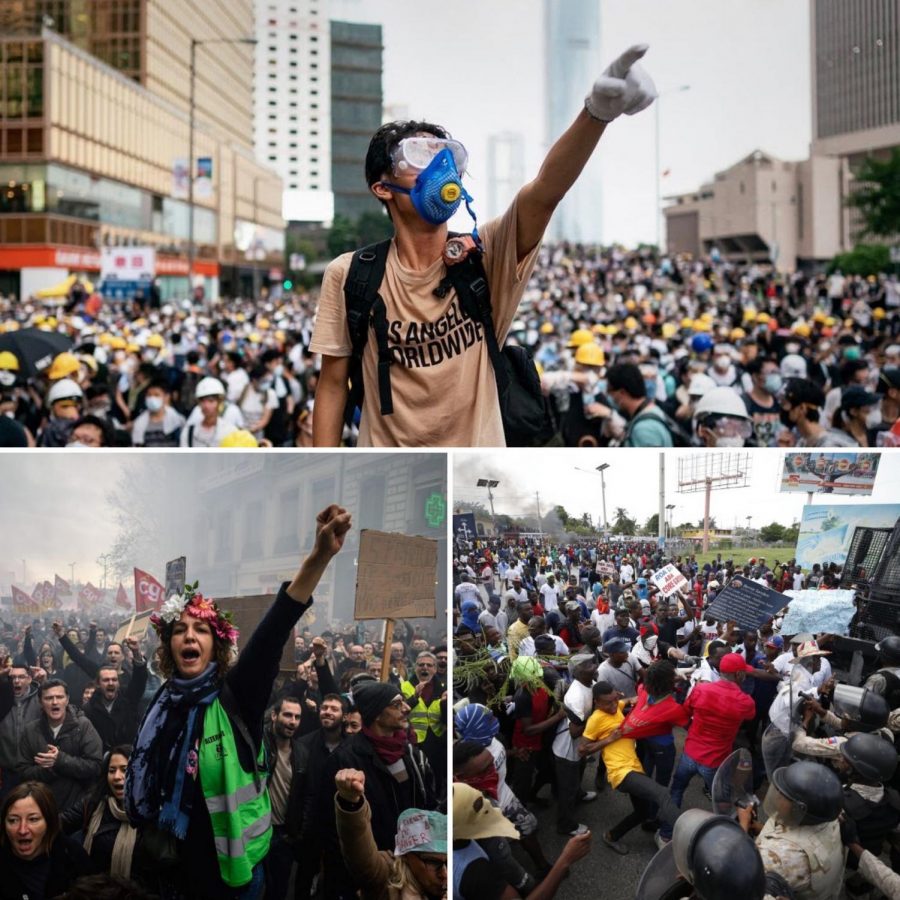Divisive Worldwide Protests Bring Unexpected Unity
Photos Courtesy of Andrew Mercer, User GTVM92 and Anthony Wallace
In Hong Kong, France and Iran, citizens protested regarding a variety of causes, spanning from reforms of the economy in France to fighting against suppression of internet access in Iran.
Voices of protest rose up against corruption in Hong Kong, Latin America, Catalonia and other countries throughout 2019, and the passionate demonstrators from around the world have collectively created an international community of believers in equality and justice. Although these protests sought to invoke necessary change, they have led to unexpected outcomes.
One of the most publicized movements took place in Hong Kong. The citizens have spent six months fighting a law allowing extradition to China that would compromise their regional sovereignty. But according to Yen Nee Lee of CNBC, the economy has suffered during this time period.
“The protests, along with uncertainties such as the U.S.-China trade war, sent the Hong Kong economy into a recession for the first time in a decade,” Lee said.
Demonstrators in Indonesia and Catalonia became inspired by the resilience and unity displayed by Hong Kong and directly adopted tactics used in Hong Kong, such as paralyzing the airport or communicating tear gas treatments through online group chats, according to Deutsche Welle Media.
“Although I’m not directly affected by the Hong Kong protests, seeing them on the news has allowed me to realize how difficult their task has been,” junior Wesley Tjangnaka said. “I’m more invested in following their cause and learning more about their perspective because it’s so prevalent in our news cycles.”
Despite failure to achieve tangible progress, protests are bringing global attention to their causes. The notoriety of the protests in Venezuela penetrated news worldwide, resulting in crowdfunding campaigns raising $640,606 and garnering legal and medical volunteers, according to Reuters.
“The internet especially is making it much more impactful for these protestors,” social studies teacher Daniel Hunter said. “They’re able to communicate with each other much more easily, plan their protests much more easily, word spreads about any kind of abuse of the protestors a lot more easily, and [the internet] can become kind of a rallying cry for them to be even more upset about certain conditions so I would say the internet plays a role in promoting the protests and enabling and empowering the protests.”
Your donation will support the student journalists of Portola High School. Your contribution will allow us to purchase equipment and cover our annual website hosting costs.

Ajinkya Rane is one of the two Managing Editors, and it is his second year in that role. He has previously served as Co Editor-in-Chief and Sports Editor,...

Ki Joon Lee is your 2019-2020 Sports Editor. On his third year with the Portola Pilot, he is excited to deliver sports news and feature amazing Bulldog...




